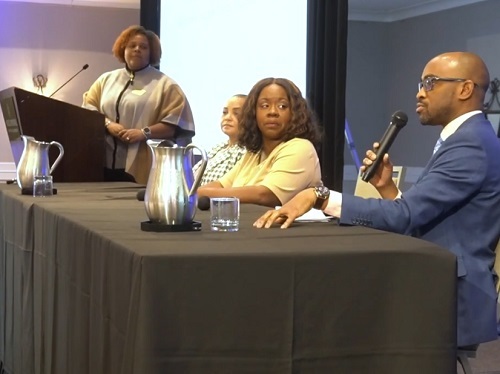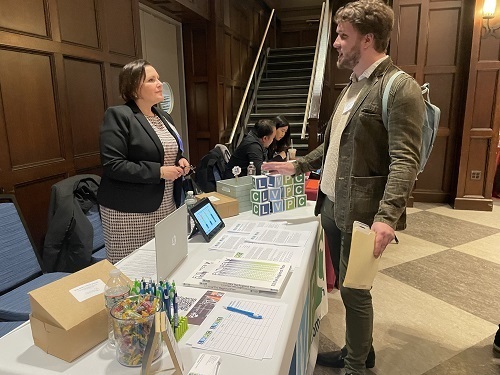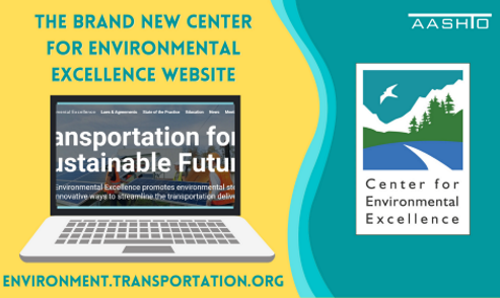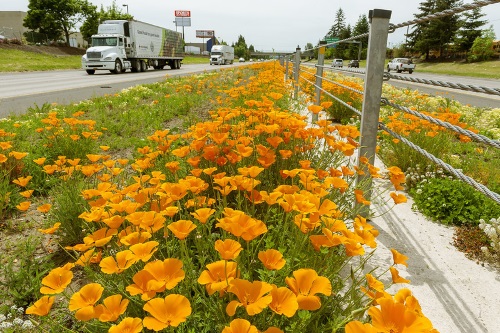The Center for Environmental Excellence by AASHTO recently released a highlight video about the “Reconnecting Communities Summit,” held in St. Paul, MN, in October 2023, which featured presentations by national and local transportation industry leaders and workshops discussing vital issues such as project fund development, transportation equity, and environmental impact.
[Above photo by AASHTO]
The Center for Environmental Excellence by AASHTO – a partnership between the American Association of State Highway and Transportation Officials and the Federal Highway Administration – worked with the Conference of Minority Transportation Officials to help sponsor that summit, which was hosted by nonprofit ReConnect Rondo and attracted representatives from 150 communities nationwide.
ReConnect Rondo seeks to transform the neighborhoods, businesses, and cultural ties on either side of Interstate 94 in St. Paul, which divided the historic Rondo neighborhood during the post-World War II highway building boom.
Those efforts have included a proposal to build a deck over part of the interstate and restore some of the amenities razed during road construction – and it received a $2 million grant from the U.S. Department of Transportation in March 2023 to do so.
The summit featured several opportunities for attendees, including presentations by national and local transportation industry leaders and workshops discussing vital issues such as project fund development, transportation equity and environmental impact.
“AASHTO is committed to improving quality of life by working toward a transportation system that serves the needs of every community safely, equitably, sustainably, and efficiently,” noted Joshua Rodriguez, director for the AASHTO Center for Environmental Excellence.
He added that the 2024 Reconnecting Communities Summit will take place September 11-13, again in St. Paul, MN. To register for the 2024 summit, click here.






